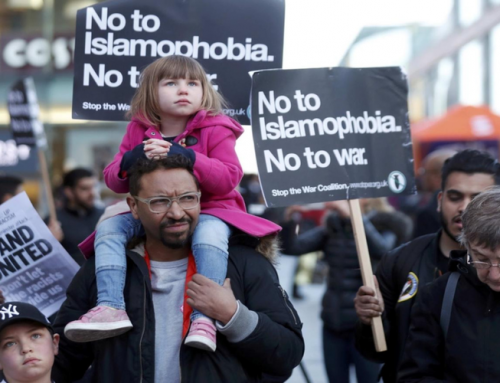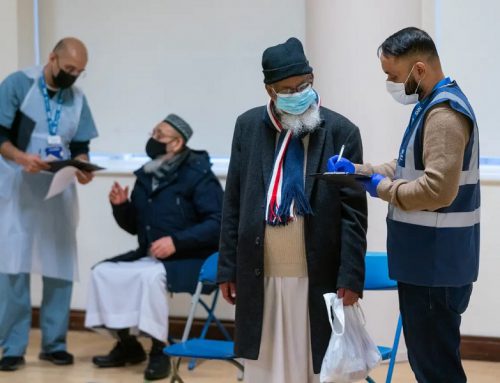The 2016 Global Terrorism Index published by the Institute for Economics and Peace and has tracked the development of the terrorist phenomenon. Compared with the year 2015, the year 2016 can be considered a bloody year despite the decline in certain indicators related to this phenomenon. Reductions have been the result of the ground campaign to regain control of Daesh occupied areas. As a result, Daesh has lost control of much of its occupied territories and influence due to the successive campaigns in 2015 and 2016. The campaign also intensified against Boko Haram led by the Nigerian government resulting in a drop in their terrorist activities compared to 2015.
This report focuses on the following four dimensions, general summary, trends, terrorist groups, economic effects of terrorism, and motives of terrorism.
In the general summary: the surveys showed that Seventy-five countries improved their scores in the 2016 GTI while 53 countries deteriorated, and the overall GTI score deteriorated by six per cent since last year due to many countries experiencing record levels of terrorism. The five countries with the highest impact from terrorism as measured by the GTI are Iraq, Afghanistan, Nigeria, Pakistan and Syria.
|
|
|
The list shows that 10 Muslim countries are the most effected by terrorism around the world |
These five countries accounted for 72 per cent of all deaths from terrorism in 2015. Numbers indicates that deaths from terrorism decreased by ten per cent in 2015 to 29,376. This is the first decrease in the number of deaths recorded since 2010. Unfortunately, two Muslim countries Iraq and Nigeria had the biggest decreases with 5,556 fewer deaths. This constitutes a 32 per cent reduction in these two countries since 2014. Meanwhile, in OECD (The Organization for Economic Co-operation and Development) member countries, deaths from terrorism dramatically increased in 2015, rising by 650 per cent when compared to 2014 where just 18 deaths was registered and all of them caused by ISIL-affiliated groups. In 2015, twenty-one of the 34 OECD countries experienced at least one terrorist attack with the majority of deaths occurring in Muslim Turkey and France. This number increased significantly in 2015, to 313 deaths from 67 attacks.
In the trends section, the report indicates that of the last 16 years, the worst year for terrorism was 2014 with 93 countries experiencing an attack and 32,765 people killed. In US as example, statistics proved that since 2006, 98 per cent of all deaths from terrorism in the US has resulted from attacks carried out by lone actors, resulting in 156 deaths.

In regard of the terrorist groups whom held these attacks, studies show that ISIL-affiliated groups undertook attacks in 28 countries in 2015, up from 13 countries in 2014. In the sometime, another 274 known terrorist groups carried out an attack in 2015, 103 groups out of 274 groups did not kill anyone. All this attacks caused the increase of deaths in twenty-three countries most of them recorded their highest number of deaths from terrorism in 2015. This is six more than the previous high of 17 countries in 2014.
Concerning the cultural levels of those who perpetrate acts of terrorism, ISIL foreign fighters who have gone to Syria generally have high levels of education but low incomes, with many fighters joining in part due to a feeling of exclusion in their home countries.
 In the terrorist groups section, statistics shows that in 2015, four groups were responsible for 74 per cent of all deaths from terrorism, unfortunately, all these groups considered Muslim groups and committed their bloodsheds in Muslim lands, and these groups are ISIL, Boko Haram, the Taliban and al-Qa’ida. In regards to the number of attacked held by these groups, ISIL surpassed Boko Haram as the deadliest terrorist group in 2015. ISIL undertook attacks in 252 different cities in 2015 and was responsible for 6,141 deaths in the year. While, Boko Haram had an 18 per cent reduction in the number of people it killed in 2015. They were responsible for 5,478 deaths during the year. In other side, Al-Qa’ida had a 17 per cent reduction in the number of people it killed in 2015. Al-Qa’ida was responsible for 1,620 deaths in the year. In another part of the Muslim world, Taliban in Afghanistan had a 29 per cent increase in the number of people it killed in 2015. They were responsible for 4,502 deaths from terrorism during the year.
In the terrorist groups section, statistics shows that in 2015, four groups were responsible for 74 per cent of all deaths from terrorism, unfortunately, all these groups considered Muslim groups and committed their bloodsheds in Muslim lands, and these groups are ISIL, Boko Haram, the Taliban and al-Qa’ida. In regards to the number of attacked held by these groups, ISIL surpassed Boko Haram as the deadliest terrorist group in 2015. ISIL undertook attacks in 252 different cities in 2015 and was responsible for 6,141 deaths in the year. While, Boko Haram had an 18 per cent reduction in the number of people it killed in 2015. They were responsible for 5,478 deaths during the year. In other side, Al-Qa’ida had a 17 per cent reduction in the number of people it killed in 2015. Al-Qa’ida was responsible for 1,620 deaths in the year. In another part of the Muslim world, Taliban in Afghanistan had a 29 per cent increase in the number of people it killed in 2015. They were responsible for 4,502 deaths from terrorism during the year.
In the section of the economic impacts of terrorism, the global economic impact of terrorism reached US$89.6 billion in 2015, decreasing by 15 per cent from its 2014 level, this number is almost duplicated in 2016, due to extensive was against ISIL in Iraq and Syria. Iraq is the country suffering the highest economic impact from terrorism, reaching 17 per cent of its GDP in 2015. The report showed that tourism’s contribution to GDP is twice as large in countries with no terrorist attacks compared to countries with attacks. In other side, the economic resources devoted to peacekeeping and peacebuilding represent two per cent of the economic impact of armed conflict and terrorism.
In the correlates and drivers of terrorism section, the statistics showed that over 90 per cent of all terrorist attacks occurred in countries engaged in violent conflicts. Only 0.5 per cent of terrorist attacks occurred in countries that did not suffer from conflict or political terror. From other side, terrorism is more likely to occur in OECD member countries with poorer performance on socio-economic factors such as opportunities for youth, belief in the electoral system, levels of criminality and access to weapons. In both OECD and non-OECD countries, terrorism is statistically related to the acceptance of the rights of others, good relations with neighbours, likelihood of violent demonstrations and political terror. Individual terrorist acts are unpredictable but follow common statistical patterns. This aids in understanding similarities between terrorist organisations, their tactics and the effectiveness of counterterrorism operations.
*Dr.Tarik Ladjal is Professor of History at Effat University in Jeddah, Saudi Arabia






